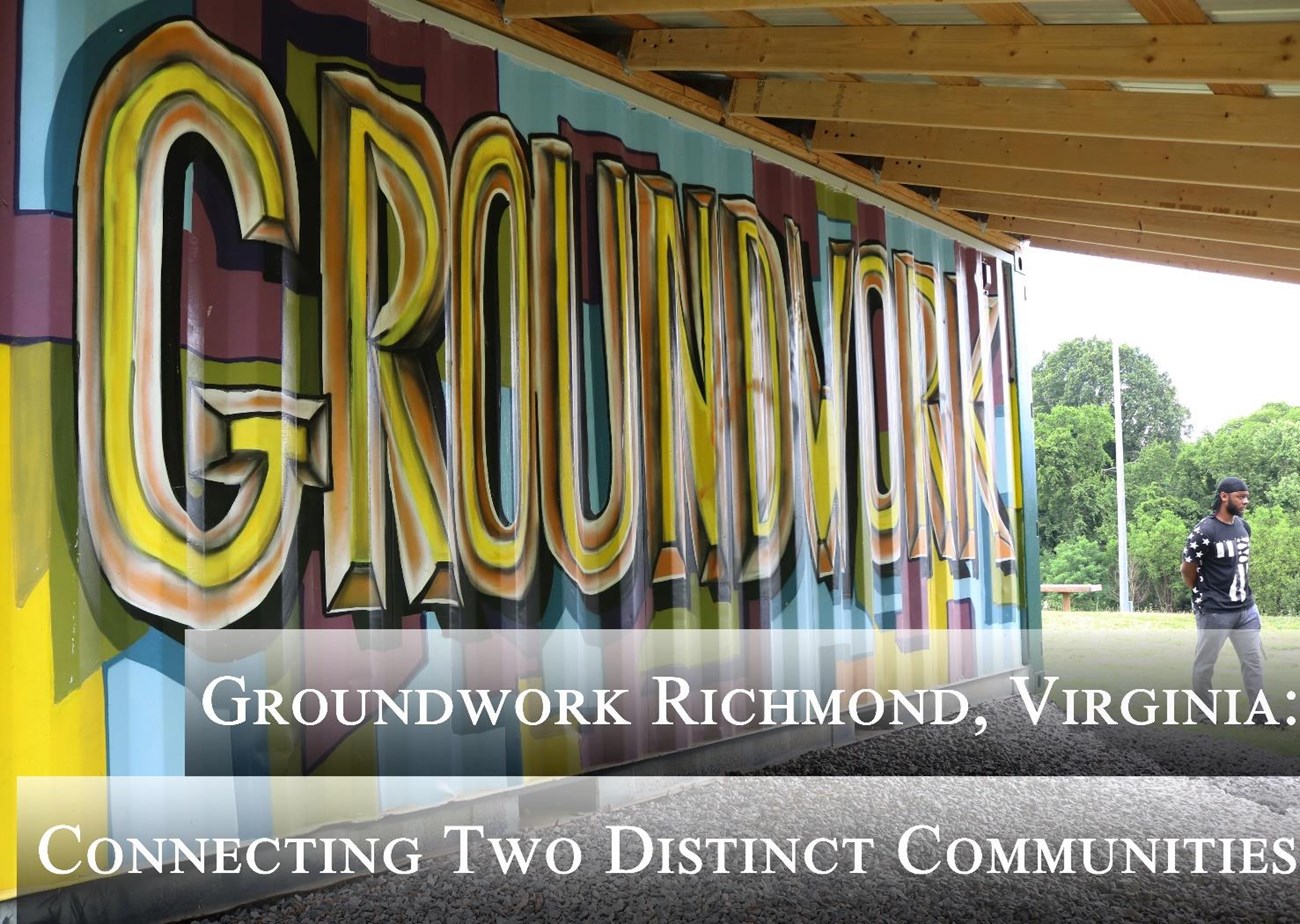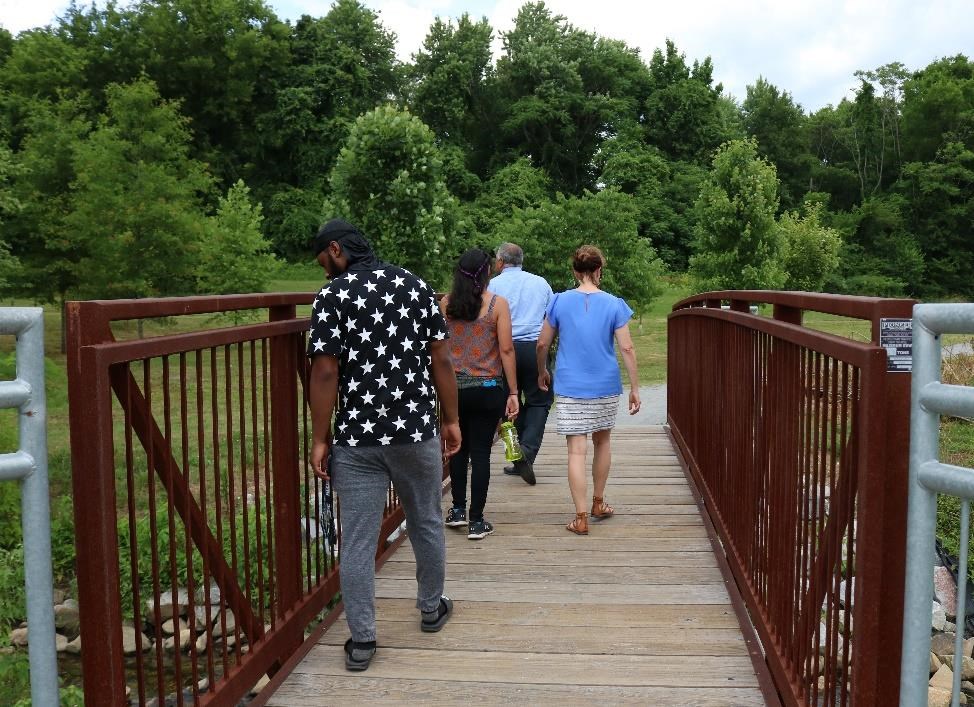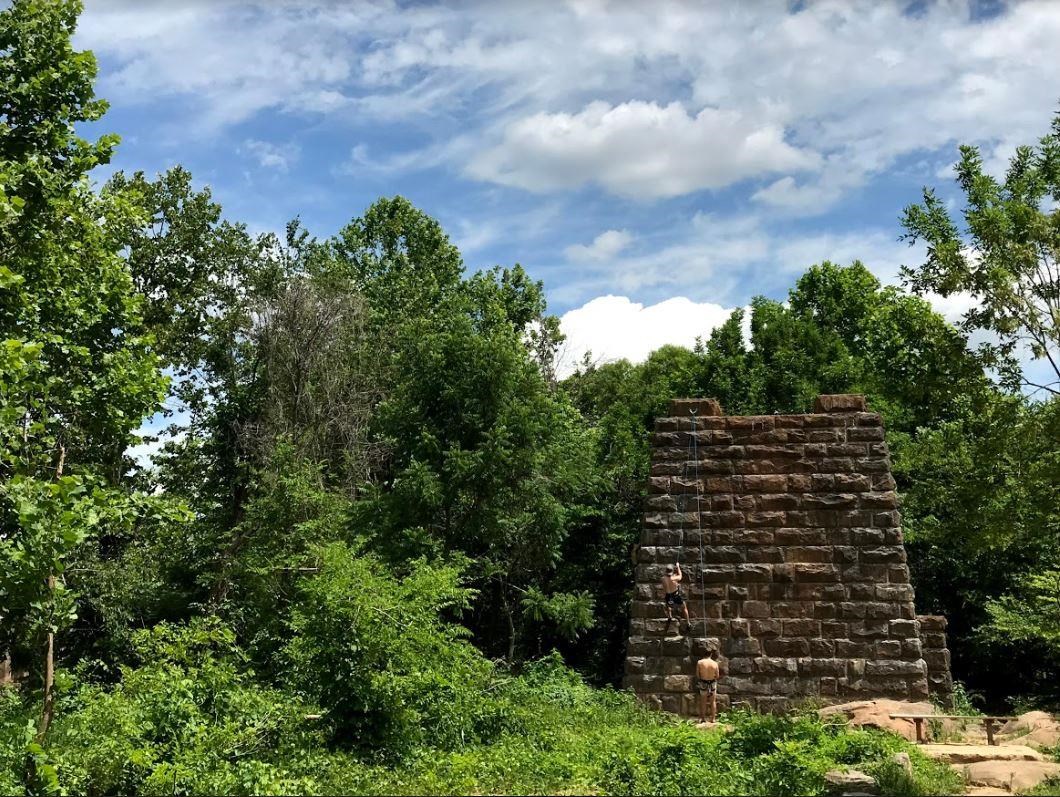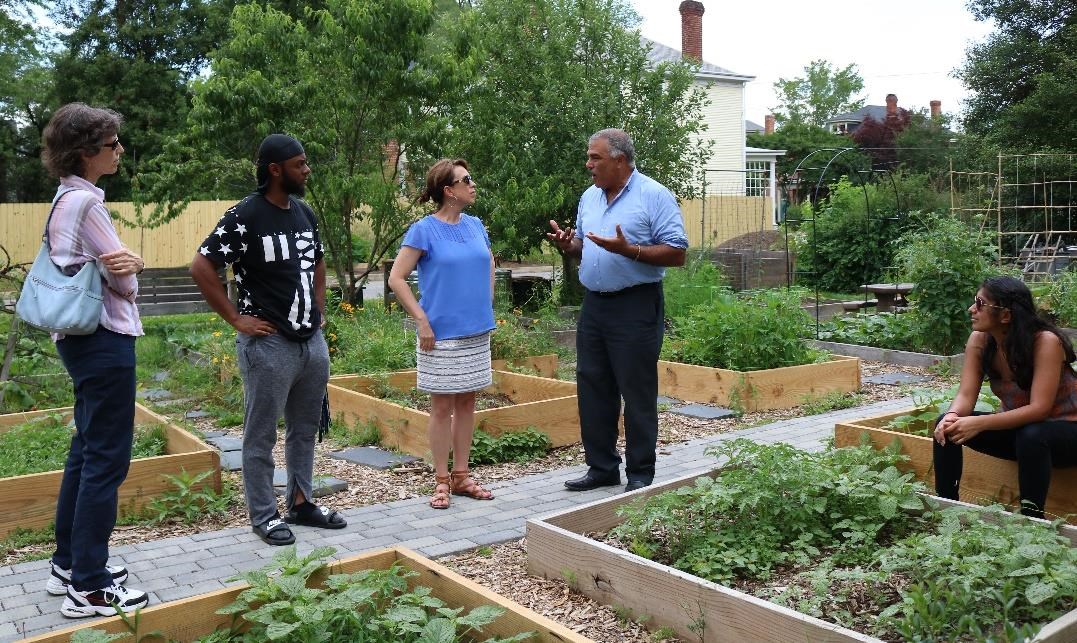Last updated: February 11, 2022
Article
Groundwork Richmond, Virginia: Connecting Two Communities

By Evelyn Moreno
“Richmond has a history of being a city that was segregated – it was the capital of the confederacy at one point – and there is the sense that in Richmond we live in a city of two cities,” said Giles Harnsberger, the former executive director of Groundwork Richmond, Virginia (known as Groundwork RVA). For almost a decade, Groundwork RVA and its partners have been working to address some of the physical manifestations of income inequalities by cleaning up vacant properties and improving access to parks, greenspaces and fresh food through community gardens.
Groundwork RVA’s origin story dates back to 2010 when Ursula Lemanski, a project specialist with the National Park Service – Rivers, Trails and Conservation Assistance program, was assisting local community members in Richmond, Virginia, on gathering city support to convert an abandoned railroad into a greenway. What started as a greenway project led to bigger conversations about the need to transform other underutilized spaces and brownfield sites in the capital city, particularly in communities struggling with economic, social and environmental decline.
A Groundwork Trust in Richmond, Virginia
Around the same time that the community was engaged in conversations about the transformation of the abandoned railroad greenway, Groundwork USA – a national organization and partner of the National Park Service and Environmental Protection Agency – was accepting applications for a new Groundwork Trust to join their network.
Hopeful to adopt the Groundwork model of changing systems, changing places and changing lives, community members formed a steering committee and submitted an application to Groundwork USA. A feasibility study was subsequently undertaken to assess Groundwork opportunities, potential partnerships, development of a new nonprofit and funding sources.
Lemanski who served as a National Park Service advisor and provided technical support during the Groundwork feasibility study said that applying to become a Groundwork nonprofit was “a great opportunity for us [the steering committee] to continue to work together and to make even more strides to get additional resources into parts of the city that hadn't had that much attention in the past."
In order for the application to be accepted there needed to be significant community involvement and support. Lemanski helped with community outreach to make sure diverse voices were brought to the table.
The feasibility study identified significant opportunities for a Groundwork Trust in Richmond to work with local partners in transforming underutilized lands and streetscapes, improving access to parks and trails, and engaging underserved communities, particularly youth, in the transformation of their neighborhoods. Though the city is unique with the James River Park System running through its downtown district, many urban youth from lower income neighborhoods of the city do not experience the park system. In addition, outdoor recreation opportunities and access to green spaces were lacking in such communities. In 2013, Groundwork Richmond, Virginia launched as a Trust and part of the Groundwork network to solve these urban challenges.

A Shared Mission and Public-Private Partnership
During the feasibility study, Lemanski facilitated meetings where community members identified opportunities for outdoor recreation and conservation projects. Projects that further the National Park Service mission. The National Park Service provided the new organization with technical assistance and the Environmental Protection Agency provided seed funding to help establish the new Trust. Additionally, Groundwork RVA partners with local National Park Service units, Richmond National Battlefield Park and Maggie L Walker National Historic Site, on historic preservation and green infrastructure projects led by its Green Team.
“Groundwork Trusts, like Groundwork RVA, have a similar overall mission that extends the reach of the National Park Service – Rivers, Trails and Conservation Assistance program into urban areas,” Lemanski said. “Because we don't always have a presence in the community it's helpful to have someone that's on the ground in the city and knows the community because they can really have an impact in the community.”
Since their launch, Groundwork RVA has worked on a dozen diverse community-led projects. One of the early projects was the design and construction of the North 25th Street Pocket Park, a park in a commercial corridor where Green Team members worked with a nonprofit design center, Storefront for Community Design, and a landscape architect to develop plans for the space. After meeting with the local community to solicit input, the team presented three design concepts at a community-wide meeting, where Richmond’s mayor and a district council member provided their feedback. The team then worked with the property owner and interviewed user groups about their use of the site, before implementing their final plan for the park.
Community and Youth in Action
Groundwork RVA works closely with community members, local organizations and the city to identify and accomplish projects. Youth are engaged through the Green Team and Green Workforce and play a significant role in the completion and success of the projects.
The Manchester Wall is one of the Green Team’s success stories. Inspired by the lack of diverse recreational users in the James River Park System, the Trust played a pivotal role in improving access to the Manchester Wall, an underutilized outdoor rock-climbing wall in the park system. The Green Team completed trails and stairway access projects to the Wall, helping residents and tourists better enjoy it.
Rob Jones, the executive director of Groundwork RVA, said that working on the Manchester Wall encouraged Green Team members to try rock climbing – creating a new and more diverse generation of rock climbers in the city. “You’re taking a population who has never been exposed to those outdoor activities like the Manchester Wall… and are creating an opportunity for folks to be a part of activities that everybody else is doing but they do not think of being theirs,” Jones said.
Kalen Gilliam who worked on the Manchester Wall, joined the Green Team when he was a high school freshman. In summer 2019, during a break from college, he returned as a Green Team Youth Leader where he led high school aged youth in removing invasive plant species, building trails and inspiring his teammates to partake in outdoor recreation activities.

“I feel like in areas like this where there's such a lack of resources, that [working on conservation, revitalization and outdoor recreation projects] definitely helps strengthen the community,” Gilliam said. “And when you're preserving these areas, you're giving kids these places where they can go out and recreate versus being out in the city, getting into things that they probably shouldn't be getting into.”
Another success story is the Bellemeade Enterprise Center, which opened in April 2018. The center, constructed and operated by Groundwork RVA, provides sessions on bike maintenance skills, landscaping, sustainability and project management – serving as a living classroom for the Green Team and Green Workforce. The spring 2019 Green Team session focused on the Urban Heat Effect, community organizing and assisting the Highland Park neighborhood with home repair and urban gardening.
According to Robert (Bob) Argabright, a founding board member of Groundwork RVA, “the bike shop [Belle Meade Enterprise Center] does more than just bikes, it is a way to connect with these kids. This whole thing is for outdoor education and to create an open space - a sacred place - for the community.”
Groundwork RVA not only works with communities to increase access to outdoor recreation opportunities but also access to fresh produce. The McDonough Community Garden is a community garden in a recognized food dessert by the United States Department of Agriculture. The Trust worked with the local community to install raised beds and offered opportunities for youth to learn about fresh food and urban agriculture techniques such as planting, watering and pest prevention.

With projects like the Manchester Wall, Bellemeade Enterprise Center and the McDonough Community Garden – Groundwork RVA is creating opportunities for underserved neighborhoods to enjoy the outdoors and improve their community and mental wellbeing by having access to trails, parks, fresh food and more.
“Groundwork RVA is working to address very complicated issues through their projects and programs with a whole host of community and federal partners – what they are doing is inspiring, it’s monumental! I am proud to call them a partner,” said Heather Passchier, Groundwork program manager for the National Park Service.
